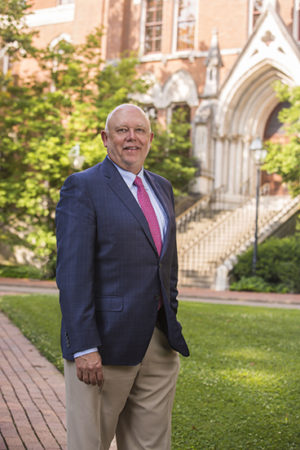By Adrienne Burns
The College of Arts and Science will convert four programs and one center into full departments, following approval from the Board of Trust. The programs in Asian Studies, Cinema and Media Arts, Jewish Studies and Women’s and Gender Studies, as well as the Center for Medicine, Health and Society, will become departments on July 1. The College of Arts and Science will then consist of 28 departments, seven programs and one center, remaining Vanderbilt’s largest and most academically diverse school.
Academic diversity and exploration are built into the college’s academic structure of centers, programs and departments. This structure allows the college to explore disciplinary opportunities at the program and center level, then build some offerings into full-fledged departments over time. The four programs and one center being converted to departments have successfully developed to a level that advances the college’s, and the university’s, vison and mission.

“These four programs and one center have featured prominently in the college’s recent academic landscape: They have advanced scholarship in their respective areas, attracted leading faculty experts, and met increasing student demand,” said John Geer, Ginny and Conner Searcy Dean of the College of Arts and Science. “I am delighted to recategorize them as departments and watch them make even greater impacts in their fields.”
Asian Studies was converted to a department primarily because of the program’s interdisciplinary and trans-institutional reach. Currently, the program has 18 tenure and tenure-track faculty with primary appointments in the departments of English, History, History of Art, Religious Studies, Political Science, Communication Studies and Sociology. The breadth of knowledge provided by these faculty members and their courses has raised the international profile of the college and will continue to help Vanderbilt students understand and make an impact in global affairs, where Asia plays an increasingly prominent role.
For Cinema and Media Arts, student interest played a role in the shift from program to department. The program has experienced significant enrollment increases in recent years, and students rate the program highly in qualitative surveys. CMA also offers a range of innovative immersion experiences that are consistently popular with students. As a department, CMA can be even more effective in educating students in the ways different media shape our perceptions of the world and change our interactions with one another—which is more important now than ever, given the media’s increasingly important, and polarizing, role in society.
In Jewish Studies, faculty achievements were influential in the college’s decision to convert the program to a department. Jewish Studies professors contribute widely and visibly to both the humanities and social sciences. Collectively, they have won 13 book and article prizes, as well as fellowships from the American Council of Learned Societies, the National Endowment for the Humanities and the Mellon Foundation. This high-quality work puts the Jewish Studies program in a position to make important strides, both in the field and for the college.
The Women’s and Gender Studies program, which will officially change its name to the Department of Gender and Sexuality, serves as a key intellectual anchor for Arts and Science students and faculty. Its course offerings and events are consistently popular with students and strongly advance the “One Vanderbilt” value of interdisciplinary cooperation. The program’s conversion to a department recognizes the importance of gender and sexuality as areas of study and discussion, as well as the strength of the program’s contributions to national and international conversations in the field.
Over the past decade, the Center for Medicine, Health and Society has earned recognition for its contributions and innovative approach to the study of health care. The program’s impact and importance are readily apparent: MHS is now the second-most-popular major in the College of Arts and Science. As a department, MHS will continue to expand its interdisciplinary approach to solving some of the most pressing issues facing the health care field.
“Each of these programs is highly trans-institutional, positioning them to work across disciplines to make a significant impact on Vanderbilt students, conduct cutting-edge research, and make important advancements in the field,” Geer said. “As departments, they will examine issues from new and multifaceted angles and help the College of Arts and Science advance its mission of addressing the world’s most pressing challenges.”